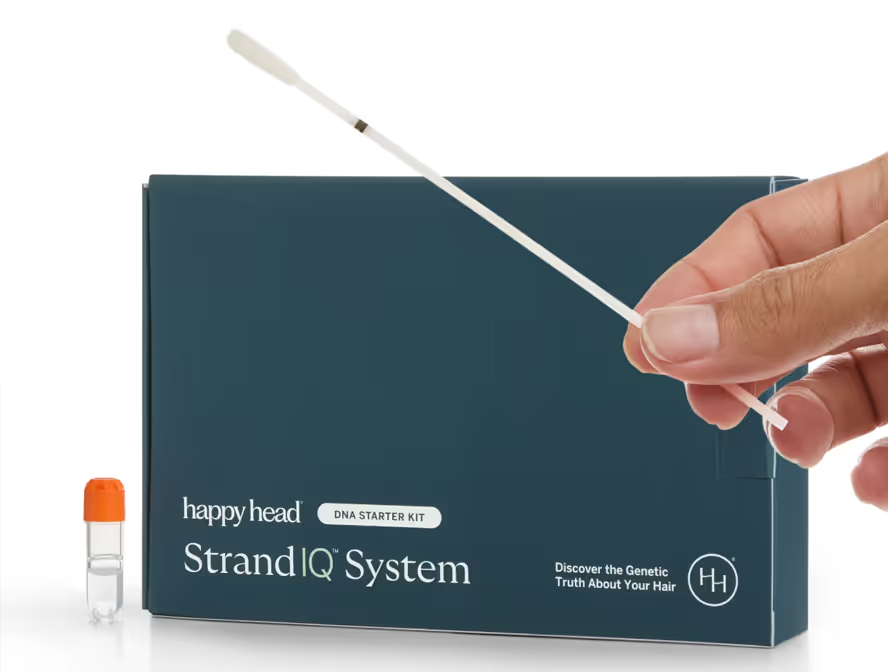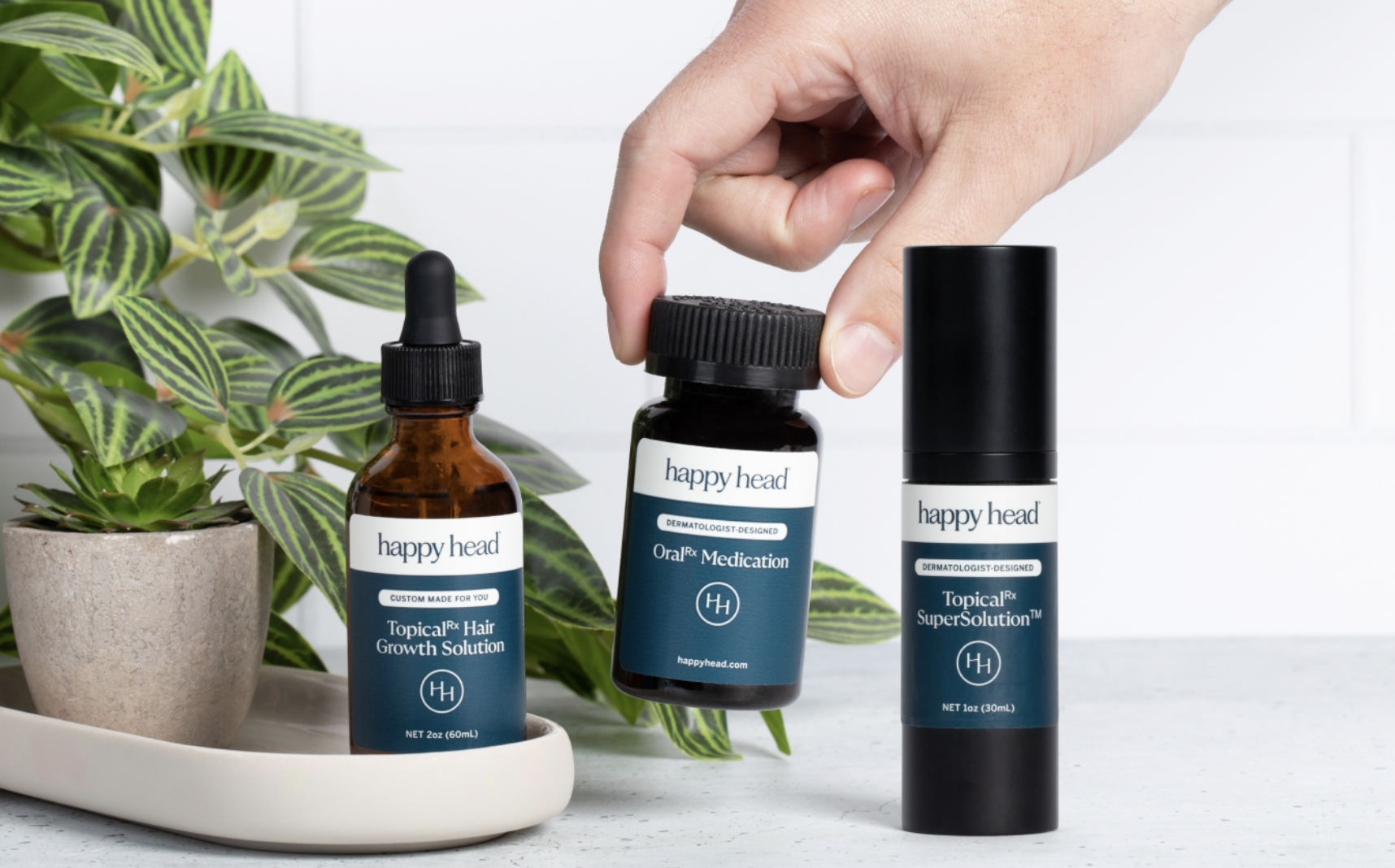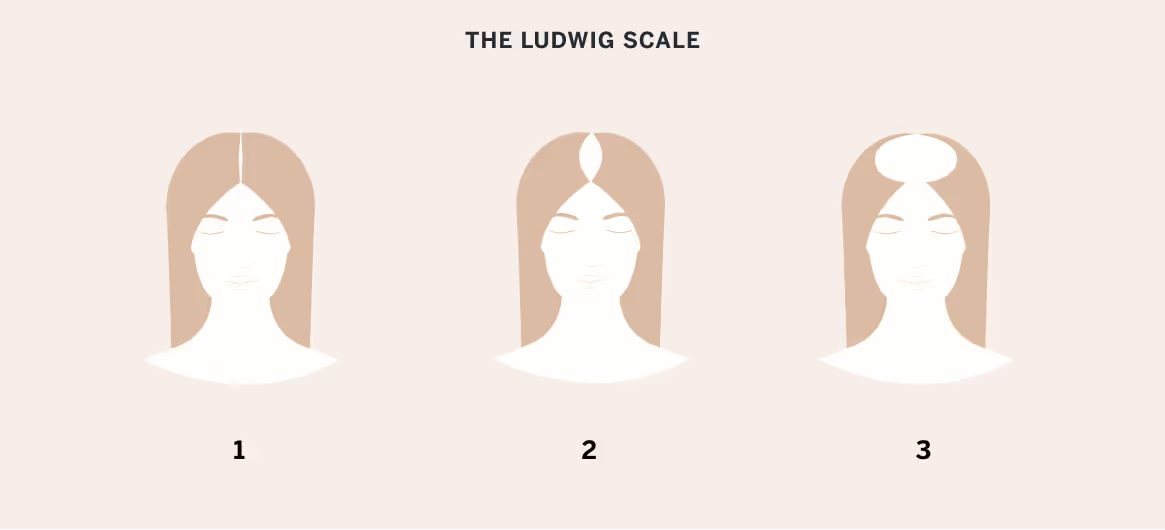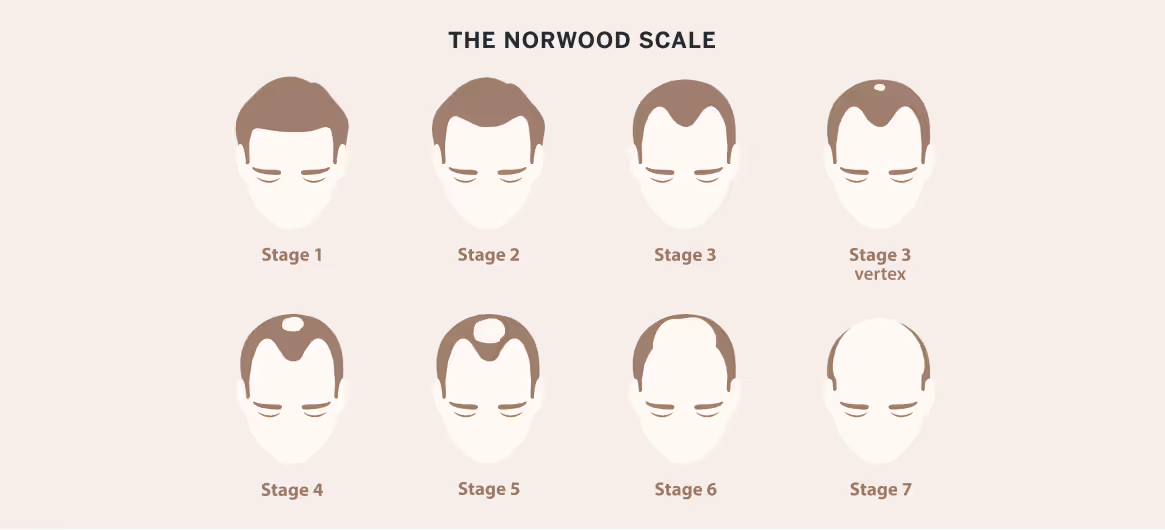What is elastin? Elastin is a structural protein found in connective tissues that gives skin, blood vessels, and other organs their ability to stretch and recoil. While it’s often overshadowed by collagen and keratin, elastin plays a quiet yet essential role in hair health.
It supports the elasticity of the scalp and the structural integrity of hair follicles—factors that influence hair strength, flexibility, and growth.
In this full guide to elastin for hair, we’ll explore the connection between elastin protein and hair, what happens when elastin breaks down, and your options for supporting healthier, stronger hair, even as you age.
What Is Elastin?
Elastin is a key structural protein, known for its remarkable elasticity and resilience, found in the connective tissues of the body.
Produced by fibroblasts, elastin forms a network of elastic fibers that allow tissues such as skin, lungs, and blood vessels to stretch and return to their original shape.
It is composed primarily of amino acids such as glycine, valine, alanine, and proline, which give it its characteristic flexibility. Unlike collagen, which provides rigidity and strength, elastin allows tissues to maintain structural integrity while accommodating movement.
Though most abundant during early development, elastin production slows significantly with age, leading to reduced tissue elasticity over time.
The Role of Elastin in Hair Structure
Elastin plays a supportive yet essential role in the structure and resilience of hair. While hair is primarily composed of keratin and collagen, elastin forms a network of fibers within the hair shaft that allow hair to stretch and return to its original shape and length without breaking.
Elastin is also found in the connective tissue surrounding hair follicles, especially within the dermal papilla. Here, it contributes to the elasticity and flexibility of the follicle, which influences how hair withstands tension, bending, and environmental stress.
Healthy elastin levels help maintain follicle strength and structural integrity, which are essential for sustaining the hair growth cycle. As elastin degrades or declines with age or damage, the scalp and follicles may become less resilient, contributing to weaker hair and impaired growth.
How Elastin Differs From Collagen and Keratin
Elastin provides stretch and recoil, while collagen offers firmness and structural support. Keratin, in contrast, is the primary protein that makes up the hair shaft itself.
Together, these proteins work synergistically—collagen and elastin support the follicle environment, while keratin forms and protects the hair strand.
How Does Elastin Benefit Hair Health?
While elastin is often discussed in relation to skin, its benefits extend to the scalp and hair follicle environment. By supporting follicular flexibility and structural integrity, elastin proves to be vital for maintaining healthy, resilient hair.
Strengthens Hair Follicles
Elastin fibers in the connective tissue surrounding the follicle help maintain structural support and adaptability. This reinforcement enables follicles to better withstand tension and microtrauma, reducing the risk of premature shedding and follicle miniaturization over time.
Improves Hair Elasticity and Reduces Breakage
By enhancing the flexibility of the hair shaft, follicle, and surrounding tissue, elastin allows hair strands to bend and stretch without breaking. This improved elasticity helps minimize mechanical damage from styling, brushing, or environmental stressors.
Supports Hair Growth and Thickness
Healthy elastin levels in the scalp create a flexible, well-oxygenated environment that supports nutrient delivery to the follicle. This contributes to sustained hair growth and may promote thicker, fuller strands by optimizing follicle function.
Causes of Elastin Loss in Hair
Elastin isn’t limitless. Like many biological components, it degrades or diminishes over time, impacting the health of your scalp and hair. A decline in elastin affects the follicle’s flexibility and resilience, potentially leading to weaker hair and reduced growth.
Understanding these causes can help you take steps to protect your hair and maintain its natural elasticity.
Aging and Natural Decline of Elastin Production
Elastin synthesis dramatically decreases after puberty and continues to decline with age. Unlike collagen, which the body replenishes more readily, elastin production is minimal in adulthood.
This natural decline leads to reduced tissue elasticity in the scalp and hair, making hair follicles and strands less resilient and more prone to stress-induced damage, thinning, and overall loss of vitality over time.
While the aging process is inevitable, using products that support elastin levels can help minimize its impact on hair health.
Environmental and Lifestyle Factors
UV exposure, smoking, chronic stress, poor nutrition, and pollution can accelerate elastin degradation. Oxidative stress caused by free radicals damages elastin fibers, weakening the extracellular matrix around hair follicles.
Repeated heat styling or harsh chemical treatments may also impair elastin-supporting structures, compromising follicular health and reducing hair strength and elasticity.
How To Support and Replenish Elastin for Hair
Although the body produces little new elastin in adulthood, certain strategies can help preserve existing elastin and support the surrounding structures that contribute to hair health.
From topical treatments to nutrition and lifestyle changes, these approaches may enhance scalp elasticity and create a more supportive environment for strong, resilient hair.

Topical Products With Elastin
Some shampoos, conditioners, and scalp serums include hydrolyzed elastin—an ingredient that has been broken down for better absorption.
While elastin molecules are too large to penetrate deeply, these products may help condition the scalp, protect against moisture loss, and reinforce the extracellular matrix surrounding follicles, promoting a healthier scalp environment.
When choosing elastin-enriched hair products, look for formulas that combine elastin with other beneficial ingredients, such as biotin, collagen, and nourishing oils.
These products are designed to work synergistically, providing optimal results for those seeking to improve hair health and appearance.
Elastin Supplements: Do They Help?
Elastin supplements typically contain hydrolyzed elastin peptides derived from marine or animal sources. While direct evidence on hair benefits is limited, they may support skin elasticity and scalp health when paired with collagen, vitamin C, and antioxidants.
A healthy scalp is essential for maintaining the environment needed for robust hair growth, but always consult with a healthcare professional before starting any new supplement regimen.
Natural Ways To Boost Elastin for Hair
Supporting elastin naturally requires a diet rich in vitamin C, copper, zinc, and amino acids, which are all essential vitamins for healthy connective tissue.
Regular scalp massage can boost blood flow and nutrient delivery, while minimizing UV exposure, smoking, and oxidative stress, which helps prevent further elastin breakdown in the scalp.
Additionally, staying hydrated, managing stress, and getting enough sleep can all contribute to healthier, more elastic hair.
Real Results: What To Expect From Elastin for Hair
Elastin-infused products and elastin-supporting routines can improve hair’s flexibility, reduce breakage, and support a healthier scalp environment, but results are typically subtle and gradual.
Over several weeks, you may notice:
- Enhanced manageability.
- Increased hair elasticity and reduced breakage.
- Smoother texture.
- Thicker, fuller-looking hair.
- Improved hair strength and resilience.
- Enhanced overall hair health and vitality.
However, because elastin cannot directly stimulate new hair growth, its effects are most impactful when used as part of a broader hair care strategy that includes scalp health, nutrition, and targeted treatments.

Additional Ways To Improve Hair Strength and Growth
For those concerned about worsening hair health, the problem may be more than declining elastin levels. A visit with a dermatologist can provide detailed insight into the true cause of your hair thinning.
Evidence-based treatments can be recommended, depending on the diagnosis, to significantly improve hair strength and combat thinning:
- Minoxidil: A vasodilator available in prescription-strength topical and oral forms that prolongs the growth phase of hair. FDA-approved for androgenetic alopecia and often used off-label for other types of thinning.
- Finasteride: A prescription DHT-blocker effective for male-pattern hair loss; topical forms offer localized effects with reduced systemic exposure.
- Dutasteride: A prescription medication similar to finasteride but inhibits a broader range of DHT-producing enzymes. Often used when finasteride is ineffective.
- Spironolactone: A hormone-blocking medication used mainly in women with androgen-related hair loss.
- Platelet-Rich Plasma (PRP): Involves injecting concentrated platelets to stimulate follicle activity and improve density.
- Low-Level Laser Therapy (LLLT): Uses light energy to enhance cellular function in hair follicles, improving growth in thinning areas.
Is Elastin for Hair Worth It?
Elastin protein for hair can support flexibility, reduce breakage, and improve scalp health, but it’s not a standalone solution for hair loss. If you're dealing with mild damage or dryness, elastin-infused products may be worth trying.
However, for ongoing thinning or shedding, consult a dermatologist. Professional evaluation can help you decide whether elastin for hair would address your concerns or if targeted treatments would be more effective.
Talk to a board-certified dermatologist to discuss your goals and find the solution that is best for you.
Frequently Asked Questions
Is elastin good for your hair?
Elastin is beneficial for hair because it plays a major role in maintaining hair elasticity, strength, and overall health. It helps anchor hair follicles, prevents shedding and breakage, and contributes to the hair's natural bounce and flexibility.
Which is better, keratin or elastin?
Keratin and elastin serve different but complementary roles. Keratin strengthens and smooths the hair shaft, making it less frizzy, while elastin provides flexibility, elasticity, and resilience. One isn't better than the other; optimal hair health often relies on a balance of both proteins.
What is elastin treatment for hair?
An elastin hair treatment typically involves applying products infused with hydrolyzed elastin to restore flexibility and strength. The goal of these treatments is to reduce brittleness, boost elasticity, and support healthier hair by mimicking the natural function of elastin.
How long does elastin hair treatment last?
The effects of an elastin hair treatment generally last between 2 and 6 weeks, depending on the product used, hair condition, and maintenance routine. Using sulfate-free shampoos and minimizing heat styling can help prolong the benefits of the treatment.












